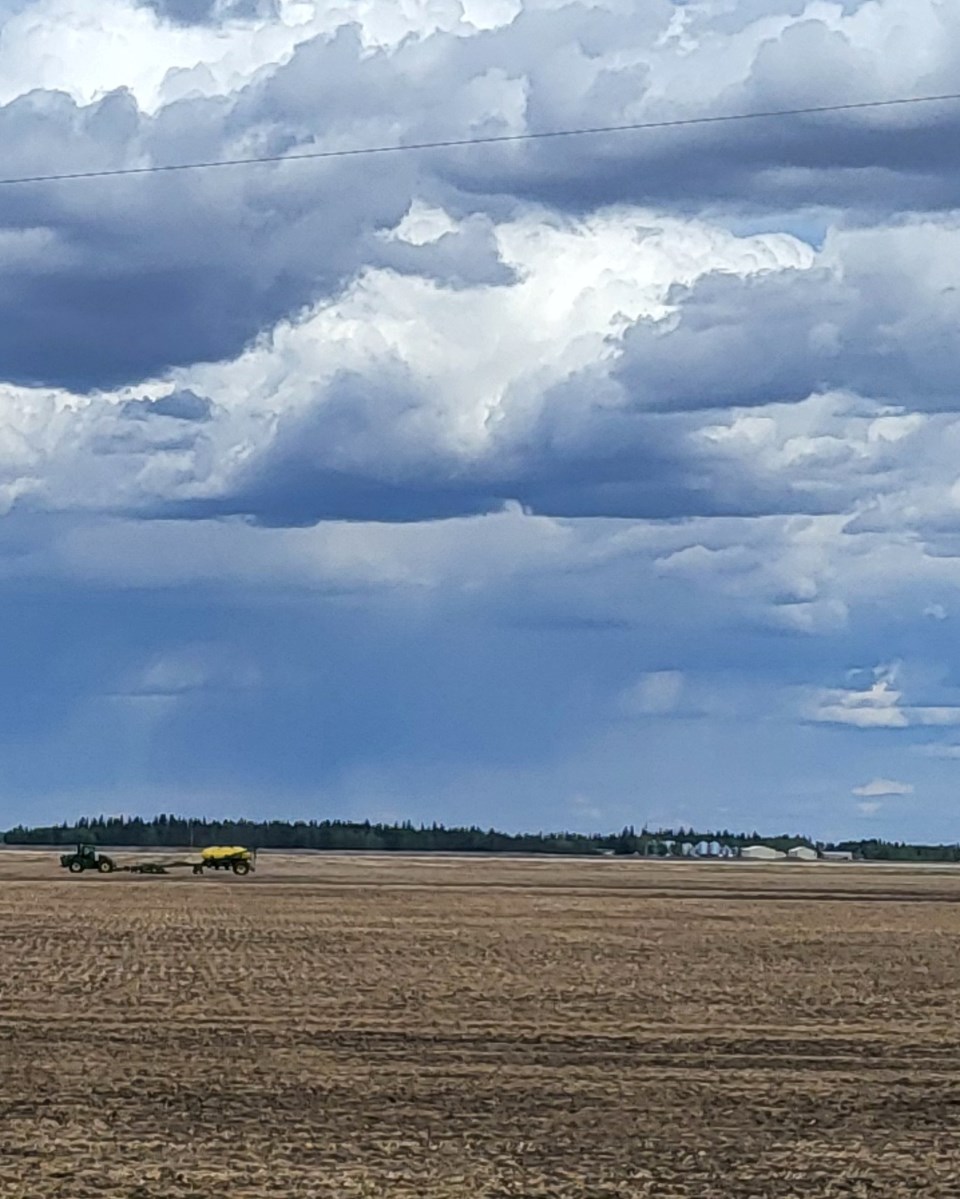BARRHEAD/WESTLOCK – With farmers starting their seeding the question comes up as to whether the looming tariffs and trade situation has altered their plans for what they are planting.
“As both a grain and cattle farmer, I can say that our crop plans for 2025 were largely set before the U.S. announced the 25% tariff on Canadian canola in March,” said Westlock County Reeve Christine Wiese.
“At that point, most of our seed and input purchases—like fertilizer, herbicides, and anhydrous ammonia—were already locked in at pre-tariff prices.”
The Wieses are planting barley, oats, wheat, and canola.
Wiese said the volatility in the canola market has been a concern since the pandemic.
The recent tariff announcement has only added to that uncertainty.
Given that the U.S. is Canada’s largest market for canola exports, the tariff poses significant challenges for farmers.
Farm Credit Canada reported in February that China was importing canola at expediated volumes and high beef prices with forecasts of continued increases over the next several years.
On March 22 it was announced that China imposed 100 per cent tariffs on canola oil, canola meal and peas, as well as 25 per cent on certain pork products.
The Wieses decided to reduce their canola acres this year to mitigate potential risks.
“These trade uncertainties underscore the need for stable and predictable market access,” said Wiese.
“Our farmers are resilient, but consistent policies are crucial to maintain the viability of our agricultural sector.”
Pieter Van Dasselaar with Semler Farms Grain Sales talks to farmers every day and what he is hearing is that farmers are staying the course.
“Farming is the only trade in in the world that goes to work every day where you don't have a clue about what his paycheck is going to be looking like,” said Van Dasselaar.
Farmers are sharing their concerns about the tariffs but know there is little to be done about it as per Van Dasselaar.
Uwe Quedenbaum is a crop farmer in Barrhead County and the Chair for the Barrhead District Seed Cleaning Co-op.
The Quedenbaums are growing wheat, canola, peas, barley and fall rye.
“I did cut back some canola acres this year and replaced them with peas and wheat,” said Quedenbaum.
“It was not really a tariff decision more so due to the fact that canola prices were relatively low in relations to input costs.”
Quedenbaum said he has a somewhat complicated crop rotation and for the most part he tends to stick with it.
He is unsure how much tariffs will affect commodities.
Whether agriculture commodities are exempt from the US tariffs for now or not is a situation that seems to change indeterminately.
This uncertainty is a big factor in the market and Quedenbaum is keeping track of what is happening.
China's tariff on Canadian canola is definitely not great, but everybody knows they do that occasionally, said Quedenbaum.
He was somewhat concerned about costs, especially parts, equipment and chemicals.
“Interesting times - not in a good way though,” said Quedenbaum.



